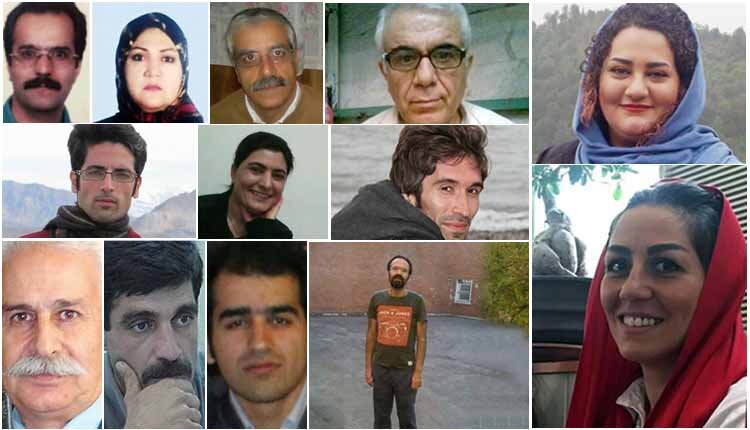Iran-HRM – A spokesman for Iran’s Judiciary says there are no political prisoners in Iran.

Gholamhossein Esmaili made the claim at a live televised program, after being asked about the recent death of a political prisoner murdered in Tehran’s notorious Fashafuyeh Prison and why political prisoners were not separated from ordinary criminals.
“Those who sometimes claim (to be political prisoners) are those who have committed crimes against security,” Esmaili said.
He also referred to political prisoners affiliated with the MEK adding that these dissident groups were working against “the system and the revolution” and were not political prisoners.
Other officials of the Iranian regime have also denied the existence of political prisoners in Iran time and again.
Earlier in February 2019 the former Judiciary Chief Sadeq Amoli Larijani claimed that that Iran has any political prisoners even as thousands of political prisoners languished in Iranian jails.
In a meeting with Judiciary officials in Tehran on February 4, Amoli Larijani said that “We currently do not have such prisoners.”
Several activists on social media explained that time that the Judiciary’s jargon for “political prisoners” is “security prisoners.”
International human rights watchdogs have observed that most political activists in Iran are charged with “acting against security,” possibly because the government does not want to be criticized for having “political prisoners.”
Amoli Larijani said that “acting against security is different from political offenses defined in the law,” adding that these are two different offenses ,and different legal procedures apply to those who are accused of such offenses.
Prior to this, Foreign Minister Mohammad Javad Zarif told reporters during one of his visits to the United States that “No one is imprisoned in Iran for his or her beliefs.”
According to a Human Rights Watch 2018 report on Iran, there are currently about one thousand political prisoners in Iran. These include political prisoners affiliated with various political groups, as well as journalists, hundreds of members of religious minorities including Bahais, dervishes and those who have converted into Christianity.
Meanwhile, the Iranian Judiciary has been refusing to carry out the Political Offence Law that was ratified by the Iranian Parliament two years ago. Because of the Judiciary’s refusal to accept detainees as political prisoners, they are usually tried at revolutionary courts, where rules and regulations are even stricter and sanctions are harsher than the courts of justice.
Most recently, a 21 year old political prisoner was stabbed to death by two prisoners on June 10 in Fashafuyeh Prison.
His mother and his cellmate believe that Alireza Shir Mohammad Ali was killed upon orders of prison officials.
The Iranian regime is obliged to keep prisoners in different sections based on the severity of their crimes and their prior records.
Article 69 of the prisons organization’s regulations states that: “All convicts, upon being admitted to walled prisons or rehabilitation centers, will be separated based on the type and duration of their sentence, prior record, character, morals and behavior, in accordance with decisions made by the Prisoners Classification Council.”
But Shir Mohammad Ali was held with inmates who had been convicted of severe violent crimes, such as murder.
 Shabtabnews In this dark night, I have lost my way – Arise from a corner, oh you the star of guidance.
Shabtabnews In this dark night, I have lost my way – Arise from a corner, oh you the star of guidance.


